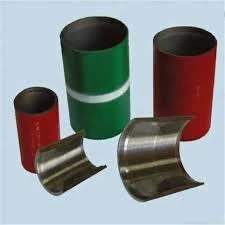- Afrikaans
- Albanian
- Amharic
- Arabic
- Armenian
- Azerbaijani
- Basque
- Belarusian
- Bengali
- Bosnian
- Bulgarian
- Catalan
- Cebuano
- Corsican
- Croatian
- Czech
- Danish
- Dutch
- English
- Esperanto
- Estonian
- Finnish
- French
- Frisian
- Galician
- Georgian
- German
- Greek
- Gujarati
- Haitian Creole
- hausa
- hawaiian
- Hebrew
- Hindi
- Miao
- Hungarian
- Icelandic
- igbo
- Indonesian
- irish
- Italian
- Japanese
- Javanese
- Kannada
- kazakh
- Khmer
- Rwandese
- Korean
- Kurdish
- Kyrgyz
- Lao
- Latin
- Latvian
- Lithuanian
- Luxembourgish
- Macedonian
- Malgashi
- Malay
- Malayalam
- Maltese
- Maori
- Marathi
- Mongolian
- Myanmar
- Nepali
- Norwegian
- Norwegian
- Occitan
- Pashto
- Persian
- Polish
- Portuguese
- Punjabi
- Romanian
- Russian
- Samoan
- Scottish Gaelic
- Serbian
- Sesotho
- Shona
- Sindhi
- Sinhala
- Slovak
- Slovenian
- Somali
- Spanish
- Sundanese
- Swahili
- Swedish
- Tagalog
- Tajik
- Tamil
- Tatar
- Telugu
- Thai
- Turkish
- Turkmen
- Ukrainian
- Urdu
- Uighur
- Uzbek
- Vietnamese
- Welsh
- Bantu
- Yiddish
- Yoruba
- Zulu
Effective Techniques for Connecting Irrigation Pipes to Ensure Efficient Water Distribution Systems
Irrigation Pipe Coupling A Comprehensive Overview
Irrigation is a vital practice in agriculture and landscaping, allowing for more efficient use of water resources to promote plant growth in various climates. At the heart of any effective irrigation system lies the need for reliable connections, and this is where irrigation pipe couplings play a significant role. Couplings are essential components that join two lengths of pipe, ensuring a seamless flow of water from one section to another. Their design, materials, and types are crucial for the overall efficacy of irrigation systems.
Types of Irrigation Pipe Couplings
Irrigation pipe couplings come in various shapes and sizes, tailored to the type of piping system in use. The most common types include
1. Threaded Couplings These are designed for metal pipes and feature male and female threads that screw together. They provide a tight seal and are easy to disassemble, making them suitable for temporary setups.
2. Slip Couplings Used primarily with PVC pipes, slip couplings allow for a simple connection by sliding one pipe end into the coupling, which can accommodate slight variations in pipe length.
3. Compression Couplings These couplings are versatile and can be used with both rigid and flexible pipes. They use a compression mechanism to secure the connection and are ideal for areas where pipes may require repositioning.
4. Barbed Couplings Typically used in polyethylene piping, barbed couplings have ridges that grip the pipe firmly, preventing leaks. They are commonly found in drip irrigation systems.
5. Socket Couplings Socket couplings are designed to fit over the ends of two pipes, creating a solid joint. They are often used in PVC or ABS piping systems for a strong, permanent connection.
Materials Used in Irrigation Pipe Couplings
The choice of materials for irrigation pipe couplings is crucial, as it affects durability and performance. Common materials include
irrigation pipe coupling

- PVC (Polyvinyl Chloride) Lightweight and resistant to corrosion, PVC is a popular choice for irrigation systems, particularly in residential applications
.- Metal (Brass or Galvanized Steel) Metal couplings are known for their strength and longevity. They are suitable for high-pressure applications but can be more expensive and heavy.
- Polyethylene Flexible and resistant to UV rays, polyethylene couplings are ideal for underground installations and are often used in conjunction with drip irrigation systems.
Importance of Proper Coupling Installation
Proper installation of irrigation pipe couplings is essential to prevent leaks, ensure efficient water flow, and extend the longevity of the irrigation system. When installing couplings, it is vital to
- Clean the Pipe Ends Debris or dirt can hinder a secure connection, leading to leaks.
- Follow Manufacturer Guidelines Adhering to specific installation instructions ensures optimal performance and guarantees that warranties remain valid.
- Check for Leaks After installation, conducting a leak test can identify potential issues before the system is fully operational.
Conclusion
In conclusion, irrigation pipe couplings are a crucial element of any irrigation system, ensuring that water moves efficiently from one pipe to another. With various types and materials available, it is important for users to select the right coupling for their specific needs, considering factors such as pipe material, pressure requirements, and installation conditions. By understanding the functionality and proper installation of these components, farmers and landscapers can enhance their irrigation systems, promoting healthier plants and conserving valuable water resources. As agriculture continues to evolve, the role of effective irrigation solutions, including high-quality couplings, will remain fundamental to sustainable farming practices.
-
Tubing Pup Joints: Essential Components for Oil and Gas OperationsNewsJul.10,2025
-
Pup Joints: Essential Components for Reliable Drilling OperationsNewsJul.10,2025
-
Pipe Couplings: Connecting Your World EfficientlyNewsJul.10,2025
-
Mastering Oilfield Operations with Quality Tubing and CasingNewsJul.10,2025
-
High-Quality Casing Couplings for Every NeedNewsJul.10,2025
-
Boost Your Drilling Efficiency with Premium Crossover Tools & Seating NipplesNewsJul.10,2025







